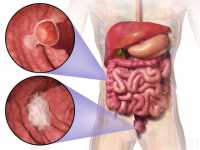Author Interviews, Cancer Research, Colon Cancer, Stem Cells / 14.02.2025
Diversity of Cells Allow Colon Cancer to Resist Treatment and To Metastasize
MedicalResearch.com Interview with:
Slim Mzoughi, PhD
Assistant Professor
Icahn School of Medicine at Mount Sinai
Department of Oncological Sciences
Hess Center for Science and Medicine
New York, NY 10029
MedicalResearch.com: What is the background for this study?
Response: Resistance to current cancer treatments remains one of the biggest challenges in oncology, often leading to cancer recurrence even after patients appear to be in remission. To overcome this obstacle, we first need to understand the mechanisms behind this resistance. For a long time, treatment resistance in colorectal cancer (CRC)—the second deadliest cancer worldwide—has been attributed to a specific group of cells known as LGR5+ cancer stem cells. However, recent studies suggest that simply targeting these cells is insufficient for achieving long-term cancer control.
That’s where our study comes in—to uncover why this is the case.
MedicalResearch.com: What are the main findings?
Response: Our study reveals that, early in tumor formation, LGR5+ cancer stem cells undergo molecular changes that render them unrecognizable. These changes cause them to resemble those found in the developing fetal intestine. In a way, this transformation reminds me of the legend of Edward Mordake, where these now fetal-like cells act as the “demon face” of cancer stem cells, resisting and surviving treatment.
Crucially, we have identified the mechanism driving this reversion to a fetal-like state, which we term oncofetal-reprogramming. Excitingly, when we targeted the oncofetal cell state alongside existing chemotherapy treatments, this significantly enhanced treatment effectiveness and extended survival in preclinical models, offering new hope for CRC patients.
(more…)





























